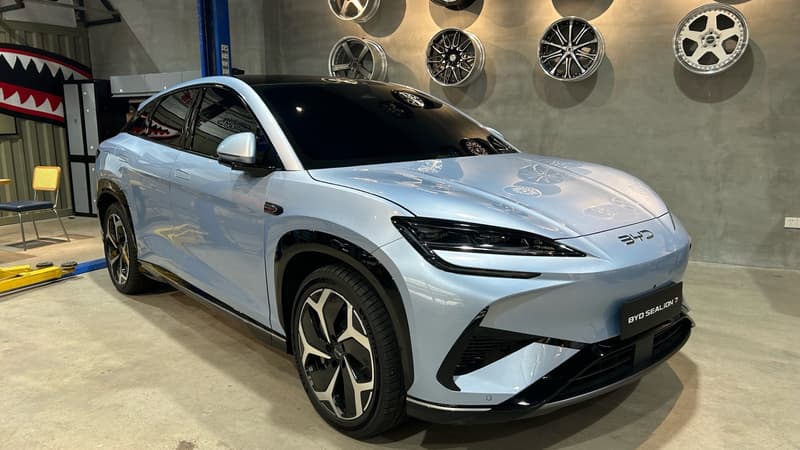The US Government announced this Tuesday the ban on the sale in the United States of connected vehicles that incorporate Chinese or Russian technology, both in components and software, considering that they could represent a risk to national security.
The Department of Commerce launched a public investigation in this regard at the end of September, which has just ended with the publication of new rules aimed at “protecting the connected vehicle supply chain from external threats.”
There are no Chinese cars in the American market
The ban will be gradual and will begin in 2027 for software and 2020 for hardware, the ministry said.
Connected Chinese cars are not currently sold in the United States, but BYD sells buses in California, which are not affected by the ban.
Some Western manufacturers, such as Volvo, a Swedish group but controlled by the Chinese company Geely, Polestar, Buick (GM group) or Lincoln (a Ford subsidiary) sell cars made in China.
The American manufacturer Tesla also produces electric vehicles in China for export to Asia and Europe.
“Cars are no longer just steel on wheels, they are computers, they have cameras, microphones, GPS devices and other technologies connected to the Internet,” said outgoing Commerce Secretary Gina Raimondo.
“Protecting the privacy of Americans”
“With this decision, the Department of Commerce is implementing the rules necessary to protect the privacy and national security of Americans by keeping out our adversaries and their ability to manipulate these technologies to gain access to sensitive information,” he added.
Specifically, the new rules force automakers to dispense with any equipment or software from suppliers “with a sufficient link to China or Russia.”
A ban that only applies to private vehicles, since the Department of Commerce estimates that the bus and truck supply chain is more complex.
“Specific rules” for these vehicles will be clarified in the near future, according to the press release.
Electronics are increasingly integrated into modern cars and most vehicles today are connected to the Internet through a navigation system.
The emergence of driver assistance and autonomous driving software further increases the risk of unwanted external interventions in the control of a car in circulation.
In mid-September, Washington had already announced that electric cars imported from China would be taxed at 100% starting September 27.
Source: BFM TV


